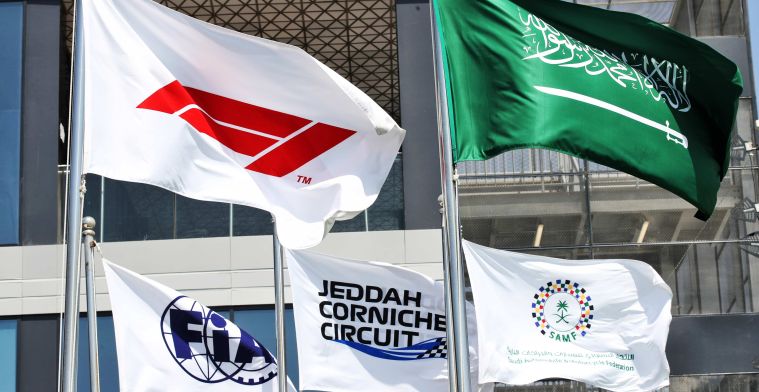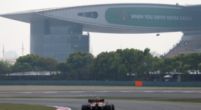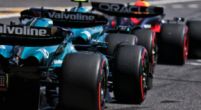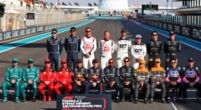F1 News

How far does the influence of the Middle East extend in Formula 1?
The mega deals that Formula 1 makes with Middle Eastern countries have been a topic of discussion for some time, but that discussion has flared up again after the missile attack on the weekend of the Saudi Grand Prix. Some Arab countries have a lot of influence in Formula 1, but when does it become too much? We take a look at how far the influence of these countries extends in the premier class of motor racing.
Major influence of Saudi Arabia in F1
The decision to allow the Saudi Arabian Grand Prix to go ahead - despite the missile attack some ten kilometers from the circuit - drew criticism from Formula 1 viewers worldwide. The various team bosses moved fairly quickly, but where they viewed the situation from a business standpoint, their drivers did not. With the very long meeting that followed, the drivers caused the F1 bosses to sweat on their foreheads. It wasn't until 2:30 in the morning that they announced that they would be racing, despite the earlier objections.
The fact that the passage of the race was of such great importance to Formula 1 chiefs Stefano Domenicali, Mohammed Ben Sulayem and Ross Brawn, sheds light on the great influence Saudi Arabia exerts over the sport. Add to that the unprecedented deal of $55 million a year to secure the Grand Prix for the next ten years and a nice picture begins to form.
Aramco has a large presence in F1
However, Saudi Arabia's influence goes far beyond the Grand Prix. The best-known example is the sponsorship deal with Saudi oil company Aramco, which was also fixed for ten years. For this Aramco would pay roughly 450 million dollars, which comes down to 45 million dollars a year. The deal also provided the ground for the Saudi Arabian Grand Prix.
In addition to Formula 1 itself, Aramco has also been title sponsor of Aston Martin since this year, which changed its name to Aston Martin Aramco Cognizant Formula One Team. In doing so, the Saudi oil giant continues to expand its presence in the premier class of motor racing.
Aston Martin is not the only F1 team with close ties to Saudi Arabia. Mercedes title sponsor Petronas, for example, has two joint ventures with Aramco. Mercedes partner INEOS has also entered into a partnership with the oil company, with the aim of building factories in Saudi Arabia. To this end, INEOS is said to have invested some $2 billion in the country.
More Saudi influences in F1 than Aramco
However, the Saudi presence in Formula 1 is not limited to Aramco. For example, Ferrari sponsor Shell is closely tied to Aljomaih Holding Company, which owns a lubricant blending plant.
Saudi influence is also not far off at McLaren. The royal family Mumtalakat of Bahrain, a country with very close ties to Saudi Arabia, holds a majority stake in the team. The family's investment company owns 56 percent of the McLaren Group.
Alpine sponsor DP World, a major Dubai-based port operator, has a long-term agreement with Saudi Arabia to modernize the port of Jeddah. This would involve roughly $500 million. PKN ORLEN, Alfa Romeo's main sponsor, also has an agreement with an Aramco subsidiary.
Grands Prix in the Middle East throwing money around
So it is mainly Saudi Arabia that is becoming more prominent in Formula 1, but other Middle Eastern countries are also expanding their influence. It started with the Bahrain Grand Prix, which has been on the calendar since 2004. At $45 million a year, the organization of that race counts down almost double the average European Grand Prix. Saudi Arabia puts another $10 million on top of that.
With amounts of $40 million and $55 million respectively, Abu Dhabi and Qatar have also made the sport an offer it cannot refuse. With that, both venues have secured their future for ten years.
Former Formula 1 boss Bernie Ecclestone may have set the tone by adding the Grands Prix of Bahrain and Abu Dhabi to the calendar, but he also indicated that he thought two races in the Middle East was enough. The new owners at Liberty Media clearly see things differently. Now the question arises whether the influence of the Middle East in the premier class of motor racing will stabilize or whether it will expand even further.



















































